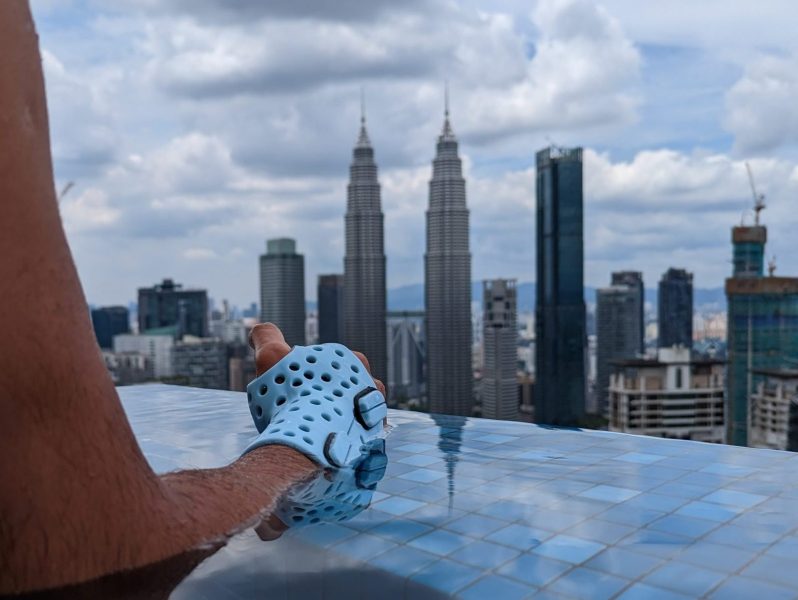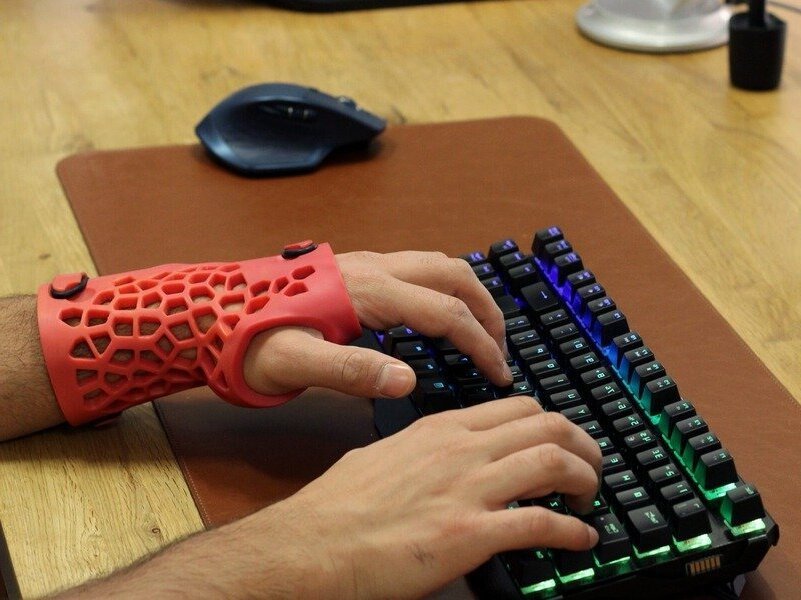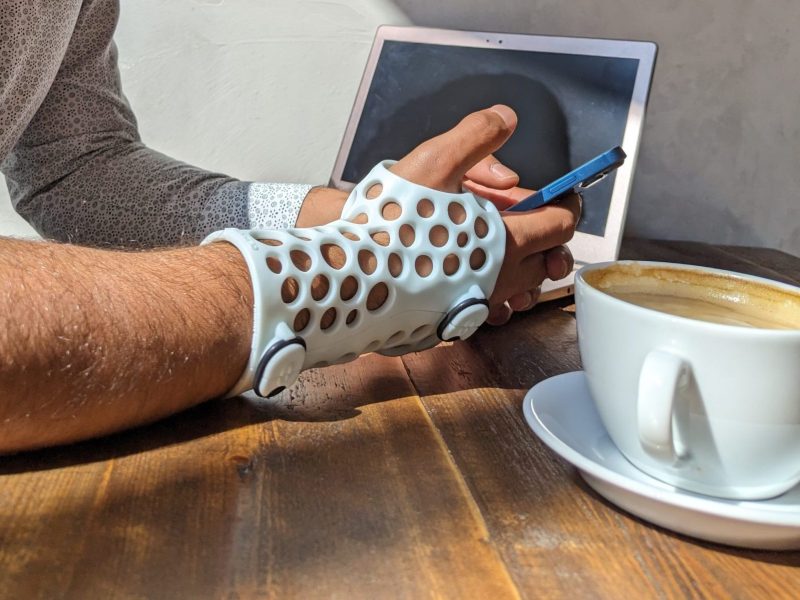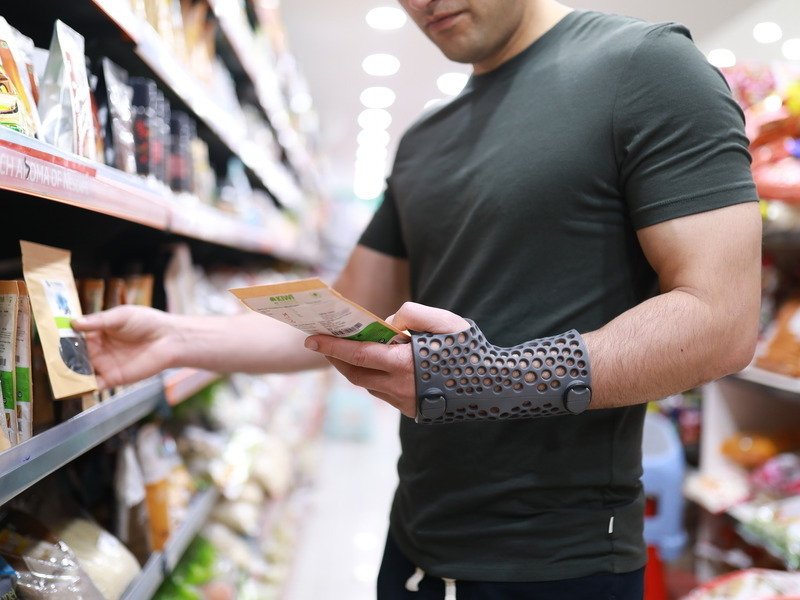Additive Design’s story
Additive Design is a Leeds-based engineering startup specialising in 3D-printed medical solutions. Through their latest innovation, CAST3D, they’re transforming recovery for stroke survivors with personalised, breathable wrist splints, an innovation made possible through their collaboration with Nexus.
When engineer Gaurav Chauhan survived a serious car accident, the painful, sweaty and restrictive experience of recovering in a traditional plaster cast left a lasting impression.
Together with colleague Ali Abdi, he began to rethink the centuries-old approach to orthopaedic casting. The pair saw an opportunity to use 3D printing to create a new generation of comfortable, breathable, and custom-made splints – and CAST3D was born.
Early designs were rough. “I remember using an Xbox controller to make a 3D scan of my hand,” says Ali, co-founder and CEO of CAST3D. “The first prototype barely fit.”
But the idea was there. After impressing a hand surgeon in London with their early vision, Ali and Gaurav realised they needed help to scale their concept and tackle the challenges of bringing medical technology to market.
They turned to Nexus, the University of Leeds’ innovation hub, for support.
Through Nexus, the CAST3D team were introduced to Professor Rory O’Connor – Chartered Professor of Rehabilitation Medicine and Director of Research and Innovation at the Leeds Institute of Rheumatic and Musculoskeletal Medicine.
“Rory helped us refocus our idea away from fracture care – which required rapid casting – and towards stroke rehabilitation, where patients often wear splints for up to two years.”
With Rory’s guidance, CAST3D surveyed stroke patients and clinicians, uncovering a surprising truth: many patients didn’t wear their splints at all, because they were too uncomfortable.
CAST3D’s 3D-printed wrist splints are lightweight, waterproof and washable. They can be personalised to fit each patient and even produced in different colours to suit individual tastes – helping boost comfort, confidence and compliance.
And the benefits go beyond patient experience. By improving hygiene, reducing infection risk and enabling visual monitoring of recovery, CAST3D could save healthcare providers valuable time and resources.
CAST3D is now working with Leeds Teaching Hospitals NHS Trust to run clinical trials of their custom splints. The startup also secured an Innovate UK grant with support from the Nexus team, funding community engagement and testing work.
For Ali and Gaurav, the collaboration with the University of Leeds has been transformative.
If you think you could benefit from being part of the Nexus community, get in touch today.
Latest news
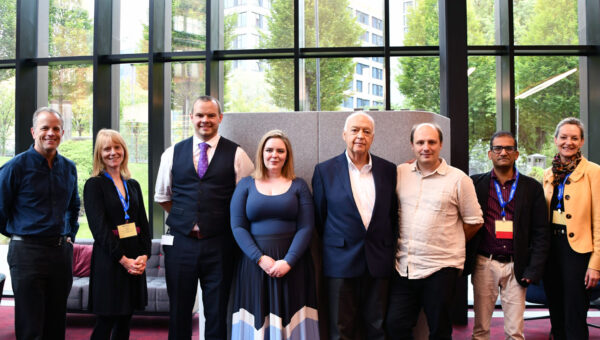
Landmark partnership launches world-first digital twin project for the NHS
The way chronic kidney disease (CKD) is diagnosed and treated could be transformed through a new partnership between the Health Innovation Network Yorkshire & Humber, Nexus, the West Yorkshire ICB and Kidney Research UK, who have signed a landmark Memorandum of Understanding (MOU) to drive innovation and impact in this area.
Read article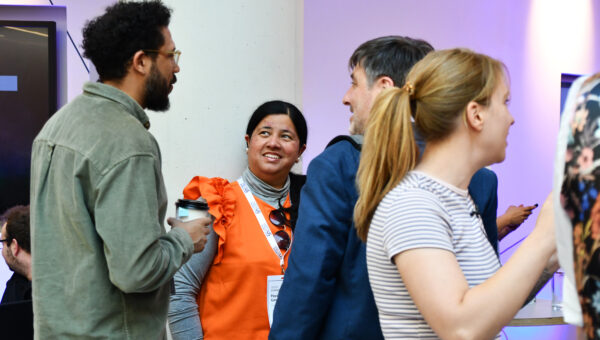
Nexus Connect: Sustainability and Resilience in the Supply Chain
Our latest Nexus Connect event provided a range of perspectives, some exciting connections, and gave the audience plenty think about.
Read article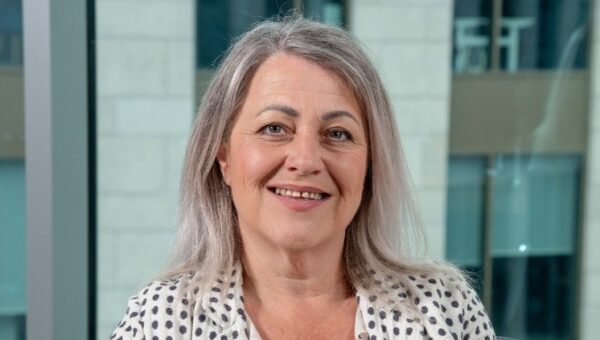
Nexus Meets… UKindTherapy
Amanda Haigh from UKindTherapy speaks to us as part of our Nexus Meets series.
Read article
